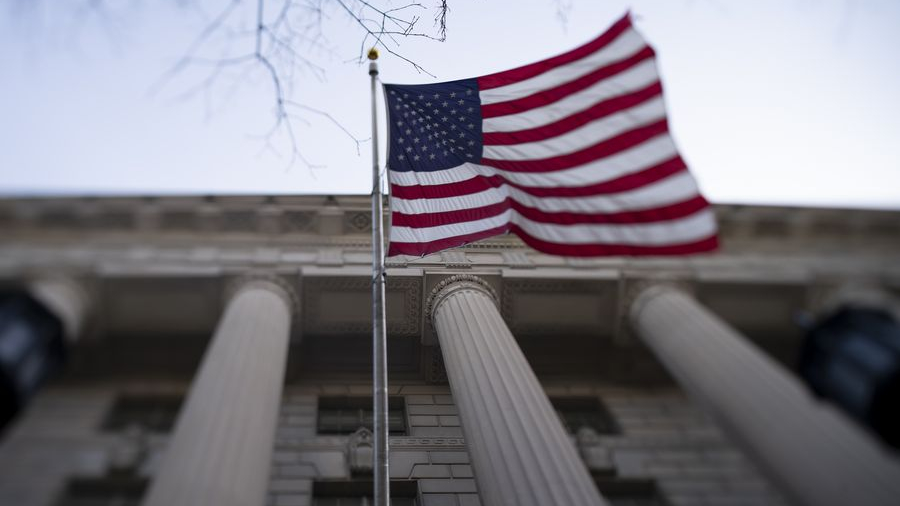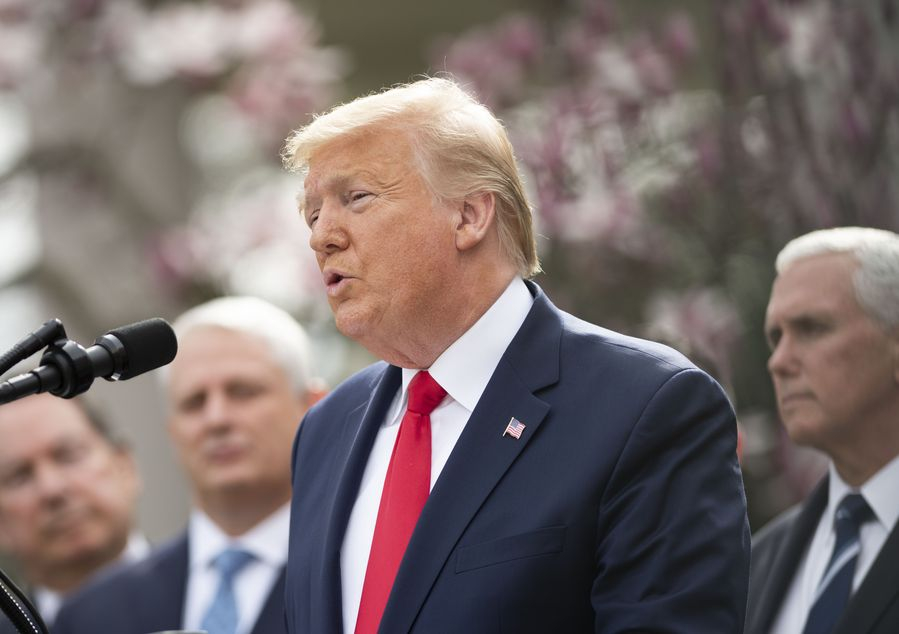
The White House Visitor Center in Washington, D.C., U.S., March 16, 2020. /Xinhua
The White House Visitor Center in Washington, D.C., U.S., March 16, 2020. /Xinhua
Editor's note: Thomas O. Falk is a London-based political analyst and commentator. He holds a Master of Arts in International Relations from the University of Birmingham and specializes in U.S. affairs. The article reflects the author's opinions and not necessarily those of CGTN.
With Donald Trump in office, it was thought that the climax of America's downfall had arrived. However, what one is now witnessing is a free-for-all, in which even an insurrection on the nation's capital did not lead the GOP to end the Trump experiment.
The Republican Party's Conservative Political Action Conference (CPAC) took place recently in Dallas.
Besides "big tech," "identity politics" and "cancel culture," one topic in particular was addressed by almost every speaker, including Donald Trump: the "big lie," i.e. the conspiracy theory that the previous presidential election was stolen from the latter.
While CPAC has undoubtedly never been known as the intellectual hub of conservatism, it nonetheless displayed how serious the situation in America has become.
But it will only get worse. Even if this still seems a long way off, the U.S. is already back in an election campaign. The midterms next year could change the narrow majorities in Congress.
Trump himself supports and endorses everyone who follows him unconditionally, especially when it comes to the "big lie." Of about 700 Republicans running for the Senate or House of Representatives, at least a third have adopted this lie as a narrative, amongst them 136 sitting members.
Already, the GOP, particularly in the House, consists of various individuals who are seemingly not interested in creating legislation. Bi-partisan projects have become an absolute rarity, even in times of immense crises.
How will America's system survive if Congress – by 2022 – is controlled by a majority of Republicans who openly embrace Trumpism?
Already the status quo is far more dire than it appears.
Fifty million Republican voters continue to believe that the election was stolen. According to reports, 53 percent of Republican voters believe that Trump is the "true president," which means nothing less than half of them believe that the current occupant of the White House Joe Biden is an illegitimate president.
Even more worrisome: 30 per cent of GOP voters believe that Trump will be reinstated as president this year.
One rightfully needs to ask: how stable is a democracy that has a complete erosion of belief in America's political system, and where does the U.S. go from here? After all, it has become apparent that the GOP is doubling down on Trumpism and the "big lie." Even the insurrection of January 6 did not have the power to change their strategy.
Five people died in the violent attacks on the Capitol, including a police officer, and many more were injured. Moreover, U.S. authorities have now indicted almost 500 individuals in connection with the insurrections.

U.S. President Donald Trump addresses a news conference at the White House in Washington, D.C., U.S., March 13, 2020. /Xinhua
U.S. President Donald Trump addresses a news conference at the White House in Washington, D.C., U.S., March 13, 2020. /Xinhua
Yet, the events of January 6 have become part of the GOP's latest revisionist history lesson – Trump has repeatedly called it a "love fest" – and in fact, we have witnessed three stages of evolution that displays the party's current status quo perfectly but also foreshadows how significant the risk for America's democracy has become:
Stage 1: Republicans, while shocked, stated that Trump was not at fault for the attacks on January 6.
Stage 2: The events on January 6 were not as significant as Democrats have portrayed it.
Stage 3: What happened on January 6 was somewhat tolerable since "noble patriots" were rightfully outraged about a "stolen" election.
One does not need to be clairvoyant to figure out that the next stage will not merely accept the events but usher in the necessity to repeat the attacks, particularly since the wheels for the latter have already been put in motion.
Ashli Babbitt, one of the insurrectionists who stormed the Capitol and was fatally shot by police, has been turned into a patriot and a martyr.
Trump himself speaks of Babbitt as an "innocent, wonderful, incredible woman." Various Republicans have repeatedly posted "who shot Ahli Babbitt" on social media, adding momentum to the latest stirring of the pot and making further acts of political violence more likely than ever.
It indicates not only that the GOP of today is ultimately not in a position to be a reliable party in governance but that it is inclined – with few exceptions such as Liz Cheney, Mitt Romney and Adam Kinzinger – to not only accept political violence but will willingly increase the likelihood of it occurring.
Since the Tea Party movement, the GOP has continually radicalized itself, culminating in the "Trump Party" transformation. Such behavior is typical of failing democracies, where an extremist faction infiltrates the government and then uses the institutions of democracy to destroy them internally.
With these developments in mind, it's no exaggeration to say that next year's midterms and the 2024 presidential election will be two of the most crucial elections in American history with the American idea literally on the ballot.
But it might even be too late by then.
(If you want to contribute and have specific expertise, please contact us at opinions@cgtn.com.)

